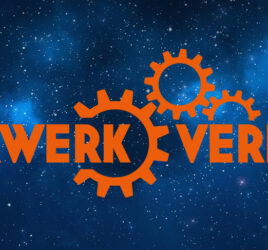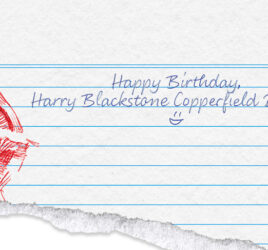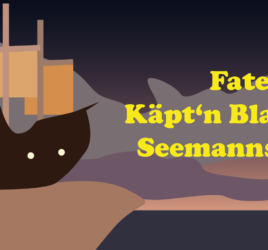Interview with Fred Hicks from Evil Hat
Ingo a fellow Blogger of Rpg related stuff did a Interview for us with Fred Hicks from Evil Hat Productions.
Ingo: Hello Fred Hicks, let us begin with your introduction and tell
us a bit about your gaming experiences?
Fred Hicks: Which experiences? I hail from a lot of gaming traditions. I
had my redbox time, my flings with Hero and Gamma World of various
editions, my college years of Fudge and Amber Diceless. They all inform my
tastes today. I’m a bit of a „gearhead“ when I get time for it. I love a
clever, unobtrusive mechanic. It’s taken me a long time to come around to
seeing the strength of good settings, and moreover the unity of system and
setting therein.
Ingo: Imagine a new potential customer or fan. How would you briefly
describe FATE CORE. What makes it special? Why should a fan of the FATE
engine support the new version?
Fred Hicks: Fate Core is a roleplaying system that focuses on capturing
what’s excellent about fiction. It’s oriented on providing you tools that
give you the best possible story experience. An authentic one that focuses
on modeling great fiction, not physics. Because that’s what we sit down at
the gaming table to make: stories.
Ingo: What is the best and what is the most critical aspect of the
upcoming edition?
Fred Hicks: Clarity of vision and strength in communicating that vision.
The game is simply more on point, and better explained, than any prior
version.
Ingo: What is the most important Fate Core feature or stretch goal
for you?
Fred Hicks: There are so many stretch goals! I’m particularly excited about
Fate Accelerated. We’re taking the 300-or-so pages of Fate Core, and paring
it down to more like 30-or-so, with an eye on giving a very easy to digest,
quick to jump in and play version of Fate that’s more accessible to
beginning gamers and folks who prefer to avoid the thicker rulebooks. We’re
not done creating it yet, but I have a feeling it’s going to land close to
the style of game that Rob Donoghue and I tend to run at our home tables.
Ingo: Your Fate Core Kickstarter is a remarkable success so far.
What do you think are reasons for this surprise?
Fred Hicks: For me the surprise is in the magnitude, not the success. We
spent a lot of time making sure that our design for this kickstarter was
smart, clear, and doing exactly what we wanted, while delivering a high
quality and undeniable value to the prospective backers. We paired that
with an existing audience that we took ten years to build. All the same, I
mainly hoped we’d do about as well as Dungeon World’s kickstarter did.
We’ve… done a bit better than that.
IngoIf I recall correctly you and Rob Donoghue created the game based on the FUDGE RPG engine.
Fred Hicks: You recall correctly.
IngoWhat is your opinion on the FUDGE RPG?
Fred Hicks: It’s the first example of a „crowd-sourced design“ RPG I
can think of, and it came along in the early 1990s, on an internet
that many folks hadn’t heard of or used. Seriously ahead of its time.
But it was always, always geared towards the folks inclined to monkey
around with their game systems and often didn’t offer enough in the
way of „drag and drop“ pre-constructed bits for people to just pick up
Fudge and start playing without having to make a number of decisions
first. Our earliest versions of Fate were mainly about trying to solve
that problem.
IngoWhat other inspirations did you have?
Fred Hicks: Rob Donoghue reads a LOT of games and they turn into this
big synthesized soup of things in his head, so it’s often hard to
tease out where certain ideas and inspirations came from. Seventh Sea
was a big deal though, a direct trigger for the creation of aspects,
with its notion of having people *pay* for their disadvantages (like
having a nemesis) because that was a *cool thing* to have show up in
the story and put more spotlight time on the character who had it.
Really eye-opening. Over the Edge, Risus, and Amber Diceless all
played around in there too.
Fred Hicks: You recall correctly.
Ingo: Now others take over the development responsibility. What
happened and what do you think about giving your baby away?
Fred Hicks: Y’know, occasionally the whole open licensing thing gets
frustrating, when folks take our „baby“ and run off in a direction that
does absolutely nothing for us. But that’s also the strength of it, part of
the reason that Fate has done as well as it has. Your baby doesn’t always
grow up the way you hoped she would, right? And that’s okay. We make our
babies so they do that: grow up, become their own person, go off into the
world and change it. By that metric I think Fate’s doing pretty damn well
no matter what folks are doing with it. Within the Evil Hat fold, tho,
it’s always been pretty easy to hand over the baby. We’re a very
collaborative company in that way. Ego doesn’t last long, and there’s
always a special alchemy that comes out of putting two or more creative
brains together under one hat.
Ingo: Crowdfunding (like Kickstarter, Indiegogo) seems to change
everything. E publishing and the electonic gaming support via smartphones
or tablets and online gaming of traditional RPG are gaining ground. It
seems the younger generation is lost for most unplugged gaming (traditional
RPGs and board games). They get great eyes for fancy video games. What do
you think about the current gaming scene and market development in general?
Fred Hicks: I think gaming is pretty strong even with the advances in
videogames supposedly siphoning away interest. I mean, what videogames do
well is a lot of complex math very quickly, right? So the value of „mathy“
tabletop games is diminished. That might make some parts of gaming look
like it’s dying, and maybe those parts are. But where I’m at I’m seeing
crazy diversity — way beyond what used to be available or supportable. And
sure, each individual game might be reaching smaller audience than the
titans of old. But in aggregate gamers are still a pretty sizable, strong
community. We just need to make sure we orient on ways to welcome new
players of any age into the hobby, rather than putting a new layer of
bricks on the barrier around our walled garden of a hobby. Fate Accelerated
and the games based on it are in part our effort — funded by the
Kickstarter — to make that just a little more possible.
Ingo: In the past Evil Hat did something unusual. On the company
blog you published the number of sold games. Now you gave the beta version
of FATE CORE to all backers of the Kickstarter Campaign. I think these
decisions are exemplary, but what is the idea behind this „open business“
attitude?
Fred Hicks: It’s pretty simple. We’re treating people like we’d like to be
treated. Starting out as a game company 7 or so years back it was terribly
difficult to get at the information about what reasonable sales performance
looked like in gaming. So when we started *having* that information… we
provided it so others could benefit. Similarly, we’ve found time and again
that if we let folks get a look at our games before we send them to the
printer, their scrutiny leads to a better, stronger final product. So the
whole „get a look at Fate Core RIGHT NOW“ thing for the Kickstarter was a
bit of a no-brainer.
Ingo: Please tell us about your future plans. As far as I know you
plan Paranet Papers for the Dresden Files RPG and a new expanded edition of
the RPG history book Designers & Dragons? Anything else?
Fred Hicks: Ha! I’d love to tell you about my future plans, but there’s
honestly just too much. Look at the stretch goals on the Fate Core
kickstarter, and blend that together with this post —
http://www.evilhat.com/home/state-of-the-hat-2012-nov/ — and you’ll have a
good sense of it all.
Ingo: Finally, some fun and quick questions.
Fred Hicks: Finally! The others have been so arduous! Seriously, tho, were
those earlier ones not supposed to be fun? I had fun.
Ingo: We start with: Role playing is …
Fred Hicks: … the way we celebrate the mad, wonderful ideas that happen
when one person’s thoughts escape the brain and go out for a night of
dancing with everyone else’s dreams.
Ingo: Favorite FATE variant?
Fred Hicks: Prior to Fate Core? (Because it’s totally Fate Core.) Diaspora
and Bulldogs! tend to get into a big fist-fight for supremacy, there. Each
one does what it’s setting out to do so very well.
Ingo: What was it like to work with Jim Butcher?
Fred Hicks: Awesome.
Ingo: Did he have problems of letting you play with his creation?
Fred Hicks: He did not.
Ingo: And: Did you play with him the final version of the RPG? If
so, how was it like?
Fred Hicks: Truth is, he loves the game, he’s seriously proud of it, but
he’s not likely ever to play it. „Too much like work,“ he says. „You’ve
recreating my writing process too well. Can’t do it. Plus, what a nightmare
that’d be. I’ll be all, ‚Yes it DOES work like that, and I’m going to write
the next book to MAKE it that way!'“
Ingo: Gamemaster or player?
Fred Hicks: I was gamemaster a lot for a while, tag-teaming with Rob
Donoghue. Most recently we’re BOTH getting to be players for once, and it
is a freakin‘ blast.
Ingo: What are the key ingredients for a great game?
Fred Hicks: Mechanics that produce an emotional response that bonds the
player to the experience. Great art. Clarity of presentation.
Ingo: You work as a freelance layoutist. The layouts for the Dresden
Files RPG and the Night Black Agents RPG are pretty complex.
Fred Hicks: I started work on Night’s Black Agents, but I was not
responsible for the final look of that game. Alas! But it turned out the
direction I was going, and my schedule, was a bad fit. I’ll take credit
(even tho I didn’t in the text) for the Dresden Files RPG though.
Ingo: Would you care to share your thoughts about good gaming
layouts?
Fred Hicks: Whether you’re going minimalist or baroque, your layout has to
live in the same world as the material, but only to the extent that it
helps shed further light on what’s exciting about the setting and what’s
important about the text. Fancy fonts can be a distraction. Deliver the
goods in a way that enhances readability, learning, and the inherent
pleasure of the game.
Ingo: What do you plan for the Fate Core?
Fred Hicks: I plan to have Jeremy Keller complete his work on it! You can
see his strong but simple-to-behold design right now by pledging to the
Kickstarter and downloading the preview.
Ingo: A design tip for established or upcoming game developers?
Fred Hicks: Figure out what your system is doing that supports the soul of
the game, what it’s *really* about as an emotional and storytelling
experience. Strip out everything else. See how well *that* runs. Then add
back in only what’s needed to further enhance that.
Ingo: What was your first role playing book and board game?
Fred Hicks: My first board game was… gosh, I have really no idea. I think
for both of those it was the kid-age classics: red box D&D and Candyland.
Ingo: What is your favorite role playing game of all time and in
recent years?
Fred Hicks: It’s hard to say no to Amber Diceless. Endlessly hacked by its
fans, it’s incredibly malleable, and just plain delivers the goods. So far
ahead of its time. In recent years? I’m seriously geeked about Marvel
Heroic Roleplaying.
Ingo: What is your favorite (board) game of all time and in recent
years?
Fred Hicks: I love a good game of spades. Trick-taking games scratch a
special itch for me. Recent years — man, Shadows Over Camelot. So good.
Ingo: Favorite game designer and/or artist?
Fred Hicks: The Fate community. I ain’t gonna name specific names. The
aggregate group-mind of it all produces amazing stuff. Every day.
Ingo: I get the best ideas for my games when … or I am most
creative when … ?
Fred Hicks: … I’m in the shower.
Ingo: Thank you, Fred Hicks. Anything else you want to share with
the fans?
Fred Hicks: We just announced the Dresden Files Accelerated stretch goal
for the Fate Core kickstarter. It’s at $400k and I really want to see us
hit it. We’ve got one week to make it there. I think we can do it. Please
come on by and help us make the goal!
Related Links:




Ingo, das Interview rockt!
Hallo,
vielen Dank für das Lob. Freut mich, wenn es Dir gefällt. Fred Hicks macht einen -sehr- sympathischen Eindruck.
Ich weiß nicht, ob es für Dominik und Karsten in Ordnung ist, aber auf meiner Webseite gibt es noch mehr Interviews.
http://obskures.de/tag/interview/
Für FATE-Anhänger finden mein Nova Praxis interview hoffentlich gut.
http://obskures.de/2013/nova-praxis-a-transhuman-sci-fi-fate-rpg-an-interview-with-the-author-mike-mcconnell/
Ggf. meinen Kommentar einfach löschen.
Danke. Bestes
Ingo
natürlich ist es Ok. Vielen vielen Dank für das Interview! Wirklich großartig